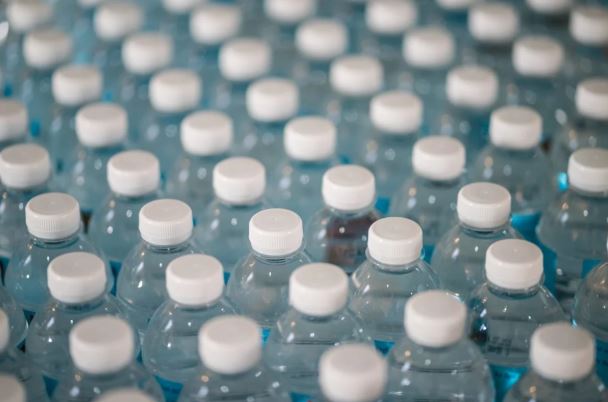Sustainable Solutions: Bioplastics developed by BEEL-UPLB
Margust Dela Cerna | August 19, 2024
The University of the Philippines Los Baños (UPLB) continues to lead in sustainable breakthroughs with the development of bioplastics, an alternative to the traditional plastic in the market.
Bioplastic or Polyhydroxyalkanoates (PHAs) is formed by fermenting bacteria. This is part of the Plastic Revolution project at the Biomaterials and Environmental Engineering Laboratory of UPLB (BEEL-UPLB) headed by Dr. Jey-r D. Ventura.

Traditional plastics are usually petroleum-based and utilizes non-renewable resources that cause degradation in the environment. Furthermore, it has hydrophobic properties causing it to be water resistant. The unavailability of natural microorganisms with enzymes capable of breaking them down results in build up in different places, posing a critical environmental concern.
“Yung PHA is actually an innate property nung bacteria. Siya lang po talaga yung parang plastic na pwedeng ma-degrade in any kind of environment. Yung property niya is almost the same with our traditional plastic,” said Dr. Ventura. With PHA, it can decompose in a month.
PHA is globally known for their use as biodegradable or compostable plastic as it is the majority of approximately 2 million tonnes of worldwide production as of 2022. Its potential in the Philippines is made possible by the members of BEEL-UPLB. “Nagko-collect po kami from waste, from sediment samples, from bodies of water. We have more than 300 species or strain ng PHA producer,” Dr. Ventura said.
In the laboratory, the process of acquiring the raw material will begin after the collection. Then, the reproduction of PHA-producing bacteria. Samples that turned into purple color is an indicator that it contains bacteria and will then undergo fermentation. After 24 hours, the sample will be extracted and purified.
This has various potential applications in packaging, textile industry, or even in the medicine industry. Further metabolic engineering should tailor-fit the PHA to its designated requirement depending on the industry.
The development of bioplastics at UPLB emphasizes the commitment of the country to provide sustainability through innovation. The widespread use of plastic may be unavoidable, but its environmental impact should be mitigated.
“Yung PHA is actually an innate property nung bacteria. Siya lang po talaga yung parang plastic na pwedeng ma-degrade in any kind of environment. Yung property niya is almost the same with our traditional plastic,” said Dr. Ventura. With PHA, it can decompose in a month.
PHA is globally known for their use as biodegradable or compostable plastic as it is the majority of approximately 2 million tonnes of worldwide production as of 2022. Its potential in the Philippines is made possible by the members of BEEL-UPLB. “Nagko-collect po kami from waste, from sediment samples, from bodies of water. We have more than 300 species or strain ng PHA producer,” Dr. Ventura said.
In the laboratory, the process of acquiring the raw material will begin after the collection. Then, the reproduction of PHA-producing bacteria. Samples that turned into purple color is an indicator that it contains bacteria and will then undergo fermentation. After 24 hours, the sample will be extracted and purified.
This has various potential applications in packaging, textile industry, or even in the medicine industry. Further metabolic engineering should tailor-fit the PHA to its designated requirement depending on the industry.
The development of bioplastics at UPLB emphasizes the commitment of the country to provide sustainability through innovation. The widespread use of plastic may be unavoidable, but its environmental impact should be mitigated.
References:
Park, H., He, H., Yan, X., Liu, X., Scrutton, N. S., & Chen, G. Q. 2024.
PHA is not just a bioplastic!. Biotechnology advances, 71, 108320. https://doi.org/10.1016/j.biotechadv.2024.108320
Tennakoon, P., Chandika, P., Yi, M., & Jung, W.K. 2023.
Marine-derived biopolymers as potential bioplastics, an eco-friendly alternative.
iScience, 26(4), 106404.
https://doi.org/10.1016/j.isci.2023.106404
Serquiña, M.C. 2024, November 4. UP Los Baños develops biodegradable plastic using bacteria.
GMA News Online.
https://www.gmanetwork.com/news/scitech/science/925965/up-los-banos-develops-biodegradable-plastic-using-bacteria/story/
PHA is not just a bioplastic!. Biotechnology advances, 71, 108320. https://doi.org/10.1016/j.biotechadv.2024.108320
Tennakoon, P., Chandika, P., Yi, M., & Jung, W.K. 2023.
Marine-derived biopolymers as potential bioplastics, an eco-friendly alternative.
iScience, 26(4), 106404.
https://doi.org/10.1016/j.isci.2023.106404
Serquiña, M.C. 2024, November 4. UP Los Baños develops biodegradable plastic using bacteria.
GMA News Online.
https://www.gmanetwork.com/news/scitech/science/925965/up-los-banos-develops-biodegradable-plastic-using-bacteria/story/

